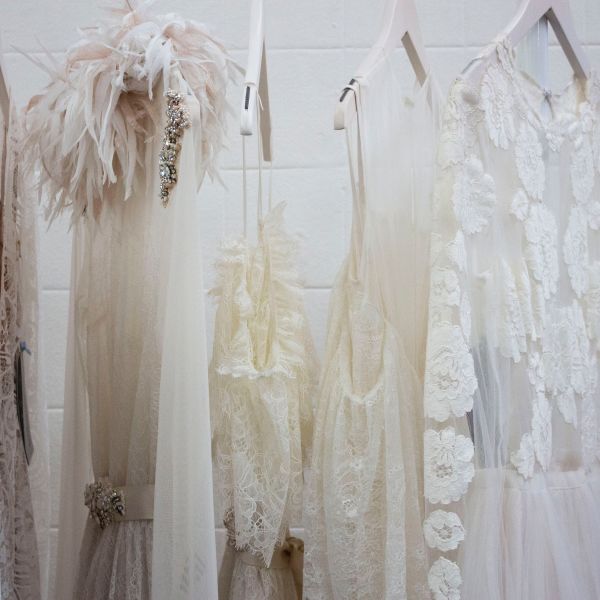Life can be tough when you don’t dress how people expect.
“So what do you study? Arts, I suppose.”
“No, science, actually. I want to be a palaeontologist,” I say, trying to ignore them looking me up and down, judging every article of clothing I’m wearing from my swing skirt to my sweater.
“How does that work?” comes the second question, “I mean, with digs and everything?”
“I don’t wear petticoats to digs,” I say with as friendly an air as I can muster in my voice.
I like to think of myself as quirky. A woman who walks around wearing petticoats, swing skirts and stockings on a regular basis is odd enough – but one who is hell-bent on palaeontology is even more bizarre. Combine that with my love of Icelandic music, writing, fashion and swing dancing and you get one very unusual person. I’m quite aware of it, too.
I accept my uniqueness, I celebrate it. I’ve always been different – but I haven’t always accepted it.
Almost everyone goes through a phase at some point, where they try to dress and act really differently to be “rebellious”, I suppose. I went through a tomboy phase. As a girl, I suppressed my attraction to pretty dresses and petticoats in favour of three-quarter length cargo pants and boys’ t-shirts. All the while, I was deeply, deeply unhappy. Obviously, it wasn’t going to last.
It came to an abrupt end almost as soon as I hit puberty, or rather, puberty hit me. I was forced into an inevitable transformation as my body began to change and I developed a distinctly feminine silhouette. All of a sudden, I couldn’t find anything that fit me and I stopped wearing jeans because I simply couldn’t wear them anymore. My top was (and still is) a 10, my waist an 8 and my hips a 12 – I was three sizes all at once. I had to say goodbye to masculine-style clothing.
I felt wretched, and for the first time, I experienced self-hate.
I started wearing skirts – after all, there was only one measurement I had to worry about: the waist. I started to transition into more traditionally feminine clothing and found myself happier for it. Slowly, my self-hatred gave way.
Unfortunately for me, there was (and still is) this idea that femininity cannot be associated with strength. No matter how much I read or how many films I watched, I never came across a character with many typically feminine features being treated as strong (supposedly because all strong women are just gender-bent men with no womanly features except for the physical ones). Looking back, I wanted so much to be taken seriously, and so I forced myself to dress like a tomboy so I could almost justify myself. I can see why this wasn’t good for me and why it was only a phase.
My awakening is something I recall quite vividly. At 17 years old, I attended the Canada-Wide Science Fair, and ended up spending a day shopping in downtown Toronto. While I walked around, I saw a shop (Tatyana’s Boutique) with those gorgeous 1950s dresses in the window. Having grown up in a small area (the Southern Highlands) with very little individuality in dressing, I was amazed. My jaw dropped when I walked in, because there were two shop assistants wearing the very dresses on display. Most amazing of all, they didn’t look like they were in costumes – they genuinely looked like they wore those things on a regular and casual basis.
“I wish I could dress like this,” I said to one of them.
“Why don’t you, then?” she asked me.
In that moment, I had an epiphany. Why don’t I? I immediately bought my first vintage-style outfit then and there.
Despite this, it took me a while to get over my insecurities and truly take the plunge, but I realised that life is far too short to spend it worrying about what others think of you. What matters the most in life is happiness – and I have found happiness in dressing the way I do.
Now, I go about the way I wish – content to be entirely myself. Femininity and strength aren’t at odds, nor are scientists and fashion senses. You don’t need to force yourself into some mold that simply wasn’t made for you, and you shouldn’t because it’ll make you feel wretched. What’s more powerful than dressing “like a boss” is wearing what you want to and not giving two hoots what the societal “rules” tell you to do. If you feel you’re a particularly unique individual, why not express it through what you wear? Clothes are one of the first things people notice about you, so make them a statement. If people are going to stare, make it worth their while.
If you’re worried about this, just remember that the conflict is imaginary. If people tell you that you can’t do it, tell them that there are already others doing it. They’re the crazy ones, not you.



